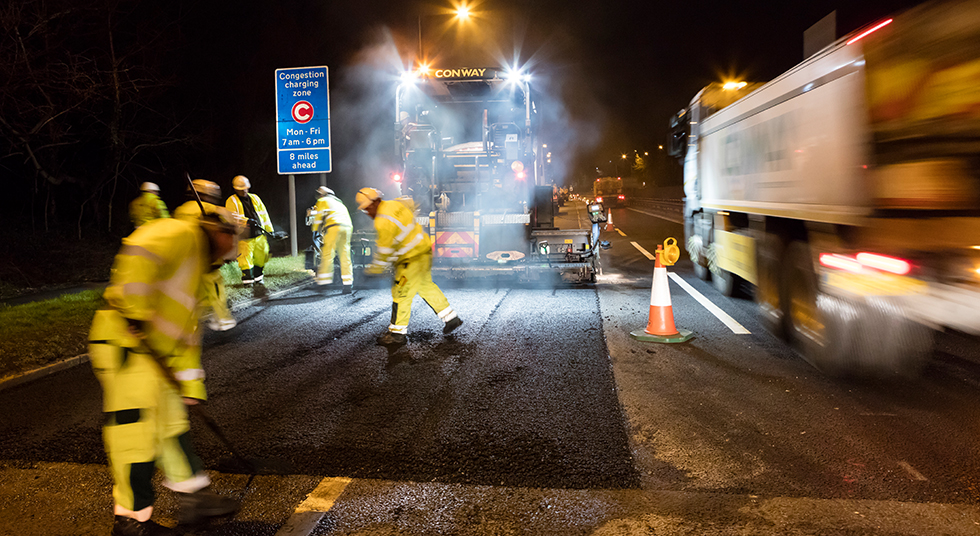Challenges and Solutions
This unique trial is being carried out on three lanes of the strategic highway and the recycled content mix will be monitored against primary aggregate asphalts, to ensure its durability and retention of a skid resistant surface.
While a long-term study of the pavement’s performance will now be conducted, Tim Metcalf, director of aggregates and asphalt at FM Conway, believes the trial has the potential to transform the way Britain’s strategic road asset is maintained.
Tim Metcalf, Executive Director of Aggregates and Asphalt at FM Conway, explains:
“We’re confident that the trial will answer any doubts about the use of high recycled content asphal,t for both surface courses and the base and binder courses of strategic roads. It not only meets specified safety requirements, but can support the highways industry in its drive to be more resource efficient.
“With the high volumes of asphalt required by Highways England’s roads investment programme and the lack of virgin aggregates needed to meet London and the South East’s highways requirements, there is a critical need to maximise existing resources and recycle the asphalt that’s currently within our roads."

